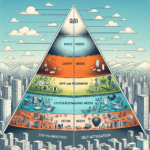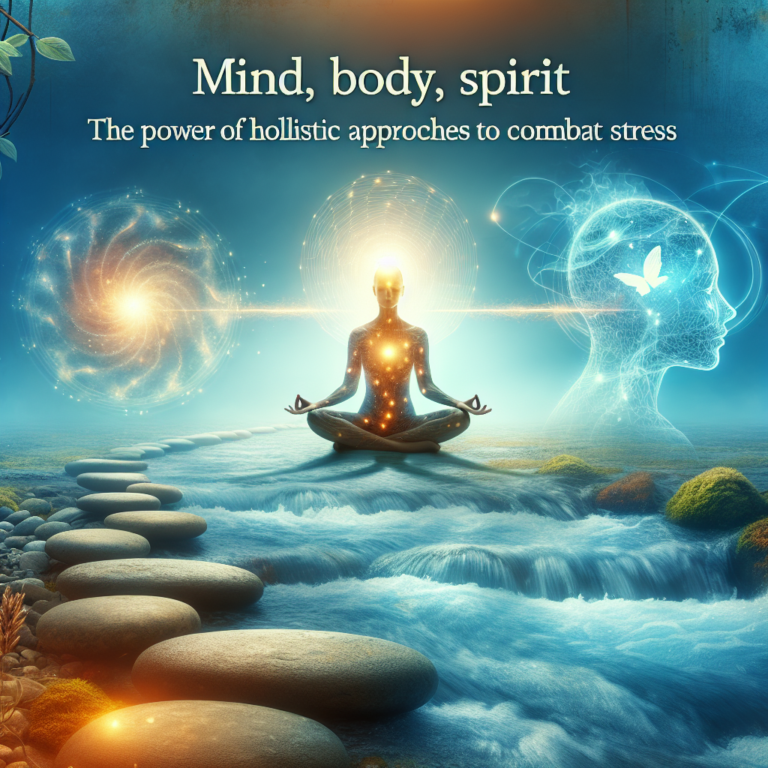
The Ultimate Mindful Approach to Dealing with Anger: Strategies for Everyday Life
Introduction
Anger is a fundamental human emotion that, when left unchecked or improperly managed, can wreak havoc on our relationships, careers, and overall well-being. It’s a powerful feeling that, while normal, often leads us down a destructive path if we fail to address it mindfully. The Mindful Approach to Dealing with Anger: Strategies for Everyday Life is increasingly recognized as not just beneficial but essential for maintaining emotional balance and fostering healthier interactions.
In today’s fast-paced world, where stressors abound, learning to navigate our emotions with mindfulness has never been more critical. Imagine transforming your anger from a destructive force into a catalyst for positive change. By harnessing the principles of mindfulness, we can create a grounded, thoughtful approach to managing anger, enhancing our emotional intelligence and interpersonal relationships.
Understanding Anger: The Emotion Beneath the Surface
What is Anger?
Anger is often misunderstood. At its core, anger is a secondary emotion—one that usually signals deeper feelings such as disappointment, hurt, or fear. When we react to anger impulsively, it blinds us to these underlying issues. Understanding anger as a signal rather than a standalone emotion is the first step in the mindful approach to dealing with anger.
The Importance of Mindfulness
Before we delve deeper into the practical strategies, it’s essential to understand the role of mindfulness in managing anger. Mindfulness refers to the practice of being present in the moment and accepting one’s thoughts and feelings without judgment. When applied to anger, mindfulness allows us to tread carefully, examining the root of our feelings and responding thoughtfully rather than reacting impulsively.
The Mindful Approach to Dealing with Anger: Strategies to Implement
1. Recognize Triggers
The first strategy in the mindful approach to dealing with anger is recognizing what triggers it. Are there specific scenarios or interactions that consistently raise your ire? Keeping a trigger journal can be immensely helpful—document occasions when you feel angry, and reflect on the circumstances surrounding those moments.
| Trigger | Situation or Context | Underlying Emotion |
|---|---|---|
| Traffic | Morning commute | Frustration at being late |
| Work Criticism | Feedback from a coworker | Fear of inadequacy |
| Disagreements | Family arguments | Feeling unheard |
Case Study: Sarah, a project manager, kept a trigger journal and discovered that her anger often boiled over during team meetings when she felt her ideas were ignored. By acknowledging this trigger, she learned to assert herself more effectively, ultimately transforming her meetings into collaborative discussion venues.
2. Pause and Breathe
Taking a moment to pause when you feel anger rising can prevent impulsive reactions. The practice of deep breathing activates the body’s relaxation response. Engage in a simple technique: inhale deeply for a count of four, hold for four, then exhale for six. Repeat this several times to create a sense of calm.
Case Study: Mark, a teacher who often felt overwhelmed by classroom disruptions, implemented a five-second pause before responding to outbursts. This simple technique not only reduced his anger but allowed him to address issues more constructively, fostering a better classroom environment.
3. Reframe the Situation
Cognitive reframing is a powerful strategy within the mindful approach to dealing with anger. It involves changing your perspective on a situation to see it in a more positive light. Instead of viewing a conflict as a personal attack, consider it an opportunity for growth or collaboration.
| Emotion | Original Thought | Reframed Thought |
|---|---|---|
| Anger | "They don’t respect my opinion." | "They may not see the whole picture." |
| Frustration | "This system is so inefficient." | "This is a chance to suggest improvements." |
| Resentment | "I feel taken advantage of." | "I need to communicate my boundaries." |
4. Express Yourself Calmly
When the time is right, communicate your feelings constructively. Use "I" statements to express how someone’s behavior affected you rather than placing blame. For example, instead of saying, "You never listen," try, "I feel overlooked when my ideas aren’t discussed."
Case Study: Jane experienced recurrent arguments with her partner, often arising from miscommunications. By applying mindful communication strategies, specifically the use of "I" statements, she expressed her feelings without provoking defensiveness, leading to deeper understanding and intimacy in their relationship.
5. Engage in Physical Activity
Physical activity can serve as a great outlet for pent-up anger. Exercise releases endorphins and provides a natural way to alleviate stress. Whether it’s a brisk walk, yoga, or kickboxing, incorporating movement into your routine is vital.
Case Study: Tom, who struggled with chronic frustration due to work stress, found that a half-hour of running in the morning significantly improved his mood and lowered his irritability levels throughout the day. He discovered that committing to a regular fitness regimen not only transformed his anger management strategy but also enhanced his overall well-being.
6. Practice Compassion and Forgiveness
Cultivating compassion for yourself and others is essential. Recognizing that everyone has imperfections can foster a sense of connectedness rather than isolation. Forgiveness does not mean excusing bad behavior; rather, it frees you from the burden of anger and resentment.
Case Study: Lily was unhappy in her job, feeling that her manager was inconsiderate. Through mindfulness practices, she began to see her manager as a flawed human being dealing with pressures of their own. This shift allowed her to let go of much of her frustration and approach her interactions with empathy.
7. Seek Professional Help When Necessary
Sometimes, anger can stem from unresolved trauma or deeper psychological issues that are best addressed with the help of a professional. Therapy can provide tools for dealing with anger in constructive ways and is particularly beneficial for those who feel overwhelmed.
Conclusion
The Mindful Approach to Dealing with Anger: Strategies for Everyday Life offers a transformative path to understanding and managing one of our most potent emotions. By employing these strategies—recognizing triggers, pausing to breathe, cognitive reframing, expressing ourselves calmly, engaging in physical activity, practicing compassion, and seeking professional help when necessary—we can cultivate a healthier relationship with our emotions.
As you embark on this journey, remember that anger in itself is not your enemy; it is how you choose to engage with it that defines your experience. Embrace these strategies, and watch your relationships flourish while you discover the personal power that comes with mindful emotional regulation.
FAQs
1. What is mindfulness, and how does it help manage anger?
Mindfulness involves being present and aware of your thoughts and feelings without judgment. Practicing mindfulness can help you recognize the signs of anger early and respond in a more measured, thoughtful way.
2. Can mindfulness help in all situations of anger?
While mindfulness can be beneficial in most cases, some situations may require deeper interventions or professional guidance. It is important to assess each situation individually.
3. How long does it take to see results from practicing mindfulness for anger management?
Results vary among individuals, but many people report feeling benefits within a few weeks of consistent practice. Patience and persistence are key!
4. Is it normal to feel angry?
Absolutely! Anger is a natural emotion. It becomes a concern when it interferes with your daily life or relationships.
5. What if my anger feels uncontrollable?
If you find your anger overwhelming, consider seeking professional help. Therapists can provide tailored strategies and support for managing intense emotions.
By incorporating thoughtful strategies into our daily lives, we can not only manage our anger more efficiently but also enhance our emotional resilience and overall quality of life. Embrace the mindful approach—you hold the power to transform anger into a force for positive change.















